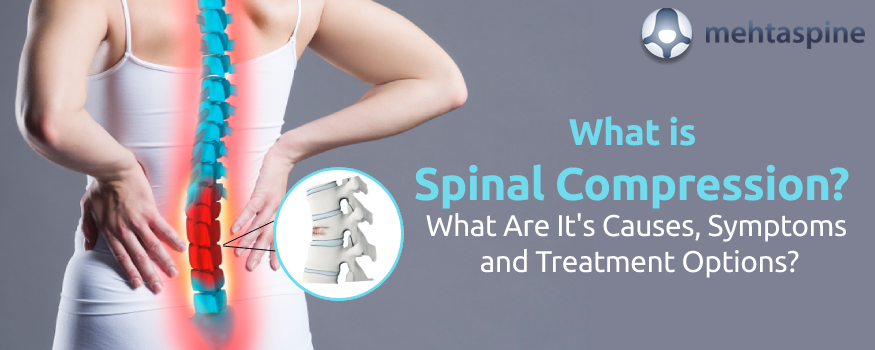What is Spinal Compression?
Our spine is made of individual bones that are stacked against each other with cushion-like discs. This bone stack forms a spinal canal that houses the spinal cord which is a bundle of nerves that travels all along the back. The nerves from the spinal cord emanate from the bony canal to other parts of the body to perform their function of relaying messages from the brain.
Any problem that is experienced by the spinal canal may impact the spinal cord and the nerves that arise from it. The problems to the spine can happen by trauma or degeneration, which is the wear and tear of the bones over the longer run.
For example, as we age, the repetitive movements of the spine may wear down the bones leading to compression in the backbones ultimately compressing the spinal cord in the process. “From cervical spine to lumbar spine, this compression of the spine can happen at any area, but most probably cervical spinal compression is the most common cause of compression suffered by population around the world”, says spine surgery expert in UK Mr Jwalant S Mehta.
Causes of Spinal Compression:
“The most common cause of spinal compression is the gradual wear and tear of the bones in the back which is commonly associated with osteoarthritis. This is the reason why individuals older than 50 are common victims of spinal compression”, says Mr Jwalant S Mehta who is also a posterior spinal correction surgeon in the UK. Apart from these conditions, spinal compression can also happen due to the following reasons:
- Injury to the spine
- Spinal tumours or infection
- Certain bone diseases that may affect the spine
- Scoliosis or other cases of abnormal spine alignment
- Rheumatoid arthritis
Symptoms of Spinal Compression:
Based on the cause of spinal compression, the symptoms of spinal compression may develop slowly or quickly. Spinal compression due to degenerative changes may take years to show up symptoms, unlike injuries where symptoms are immediate. Infections or tumours may take days or weeks to cough up the symptoms. In general, the common symptoms of spinal compression include:
- Stiffness and pain in the neck or lower back
- Weakness, numbness in legs, hands or arms
- Burning sensation in buttocks, arms, or legs
- Loss of coordination and sensation in the feet
- Depleted bowel control or sexual ability
- Severe weakness or pain in the legs
Treatment for Spinal Compression:
The team of specialists that treat spinal compression include spine specialists, arthritis specialist, bone surgeons and physical therapist. Medications, injections, physical therapy and surgery are the treatment options that are used by the team of specialists based on the severity and cause of spinal compression.
“Steps can be taken by individuals today to reduce the wear and tear of the spine to cut down the risk of spinal compression. Regular exercise to strengthen the bones and muscles, adopting a healthy posture and healthy weight to reduce the extra stress on the back can help in this process” says Children & Adult Spinal Surgeon in UK Mr Jwalant S Mehta. Got more queries on spinal compression? You can contact him here


